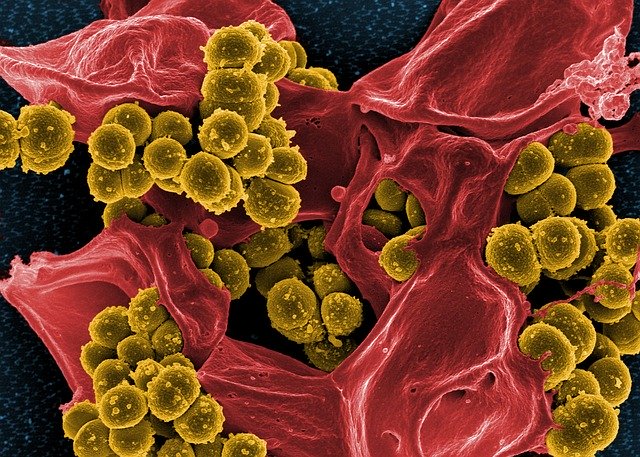Russell Skinner, MDWhile autoimmune diseases have many unanswered questions, there is increasing evidence that gut bacteria is a driving factor in autoimmunity. A research group from Yale performed a study that has given us more evidence that gut health can lead to autoimmune diseases.
The Link Between Gut Bacteria and Autoimmune Disorders The researchers discovered that when Enterococcus gallinarum was moved from one part of the gut to the liver or other tissues within mice, it triggered autoimmune responses. In the study, they chose mice that were genetically susceptible to autoimmunity and found that as the E. gallinarum moved to other parts of the body, it causes inflammation. Also, they found that their bodies produced auto-antibodies. Both of these responses are signs of an autoimmune disorder. They moved from testing mice to performing these same tests on cultures taken from human liver. These tests resulted in the same findings- gut bacteria played a key role in the development of autoimmune diseases. Ronit Mor, NDDetoxification is what our body does naturally to neutralize, transform or get rid of unwanted materials and toxins.
It is a primary function of the body, constantly working and interacting with all other functions of the body. Our body manufactures enormous amount of molecules on a daily basis in support of the detoxification process. Our body requires hundreds of enzymes, vitamins and other molecules to help rid the body of unwanted waste products and toxins. Although the bulk of the work is done by the liver and the intestinal tract, the kidneys, lungs, lymphatic system and skin are all involved in this complex detoxification system. Ronit Mor, NDWhat if there was one organ in your body that had the power to control the way you look, feel and think? And what if this organ serves as a common denominator for most of today’s health problems?
According to the U.S. Department of Health and Human Services, anywhere from 60 to 70 million people in the U.S. are affected annually by some kind of digestive diseases, which are all too often related to an unhealthy colon. In 2015, the CDC reported that about 3 million adults were diagnosed with IBD (either Crohn’s disease or ulcerative colitis), and this estimate does not include children aged <18 years, who may also have IBD. It is also estimated that 75% of people older than 45 suffer from hemorrhoids and 63 million people suffer from chronic constipation. The American Cancer Society projects 135,430 individuals newly diagnosed in 2017 with colorectal cancer with 50,260 deaths from that disease. Ronit Mor, NDThe term--Watch what you eat!—is commonly in reference to weight gain and physical fitness, but what about in connection to the brain? Reality is, your diet has a direct affect on your brain and how it performs. While healthy foods promote beneficial reactions such as mental clarity and alertness, unhealthy foods can alter your mood, impair your thinking, and even trigger anxiety.
Ronit Mor, NDCandida. Most people associate this word with annoying, vaginal yeast infections, and while that’s true, there’s so much more to this common fungus. According to the Centers for Disease Control and Prevention (CDC), it's estimated that approximately 46,000 cases of candida-related infections occur each year in America, but did you know candida is present in everyone—both male and female?
What is candida? Candida is a kind of fungus or yeast that we all have living throughout our gastro-intestinal tract and in other areas of the body. Usually, candida coexists with good bacteria in the body’s system and isn’t problematic. Trouble occurs when candida outnumbers the good bacteria and sends the system into chaos. Dysbiosis, also called dysbacteriosis, is the term for a microbial imbalance or maladaptation inside the body, and in this case, having a candida overgrowth. Russell Skinner, MDDid you ever consider there is more in your gut than your latest meal?
Gut flora, or microbiota, is the microbe population which is found in the digestive tract. The complex ecosystem that harbors these microbes is called the microbiome. The microbiome is composed of numerous species of bacteria, fostering both good and bad. Good bacteria are vital for daily health by assisting in digestion, creating vitamins, and protecting the body’s system against infection. Ronit Mor, NDThe gut is literally the gateway to health.
There is no part of the body, no disease, no organ system – that the gut does not directly or indirectly affect. Studies have confirmed that not only does the gut transfer food to vital organs, but it plays a role in our physical health, mental health, emotional stability, immunology, neurology, endocrinology, and pathology. Our Microbiome Are As Unique As Our Fingerprints Our body is, in fact, a complex ecosystem made up of more than 100 trillion microbes (10 times the number of human cells!) that must be properly balanced and cared for if we are to be healthy. |
Archives
October 2022
Categories
All
|
|
FOLLOW US
|
RESOURCES
|
©2020-2024 Ronit Mor LLC. ALL RIGHTS RESERVED
All statements on this website have not been evaluated by the Food and Drug Administration. The content of this website is not intended to diagnose, treat, cure, or prevent any disease.
All statements on this website have not been evaluated by the Food and Drug Administration. The content of this website is not intended to diagnose, treat, cure, or prevent any disease.







 RSS Feed
RSS Feed
